On February 3rd, 2021, Anne Feeney died in the hospital in Pittsburgh, Pennsylvania, with her children at her side. She was 69 years old. She was a cancer survivor in poor physical health when she fell and broke her back a month ago, and in the hospital she contracted Covid-19, then pneumonia.Although Anne died too young, she lived a long life. She lived many lives during those 69 years, really, and she cheated death at least a couple times during her last decade on Earth.
As I set out to write some words about my old and very dear friend, colleague, and fellow worker (that’s Wobbly for comrade), I feel compelled to note first that this is only going to be one of many remembrances of Anne Feeney that will be written, by many different people. Anne personally knew many thousands of people around the world. Many of them she spent a lot of time with over many decades, and knew very well. A much larger number of people have listened to her music over the course of those decades, and thus had her in their lives in all sorts of other important ways.

As has been noted in the local Pittsburgh paper, Anne was born in 1951, and spent her childhood in Pittsburgh. One of her earlier musical appearances, when she was still a teenager, was captured in a beautiful photograph in 1969 singing a Phil Ochs song at an antiwar protest with her recently-purchased Martin guitar.
The Pittsburgh that Anne grew up in was still one of the main centers of the steel industry in the world, and one of the most vibrant centers of labor activism in the US. Anne’s grandfather, William Patrick Feeney, was also a musician, and a labor organizer, with the United Mine Workers of America in West Virginia, several mountain ranges south of Pittsburgh. One of the unfinished projects of Anne’s latter years was a biography of her grandfather.
Of course, I didn’t know Anne when she was a child. (I was born in 1967.) And when I was growing up, and Anne was a young adult living in Pittsburgh, she had a whole life of which I only have second-hand knowledge, for the most part, and I’ll leave it to other people to talk about that. Anne was a lawyer for the working class for many years, as was her first husband, Ron, with whom she had two kids, both now accomplished people in their thirties, who both went on to pursue very similar interests as their parents.
Anne’s second career, or third career, depending on how these things are measured, is the one I have some familiarity with — her career as a touring musician, briefly interrupted by a stint as the president of the Pittsburgh Musician’s Union, which she really did not enjoy, as I distinctly recall.
It’s easy to remember the first time I heard Anne’s music, because it made such an impression on me. It was a demonstration in Boston at Government Center circa 1993, something having to do with labor issues, I don’t remember what, but through the sound system in the largely empty, sterile space in front of the building was emanating some wonderful music. I asked one of the organizers who it was, and she told me, “Anne Feeney.”
I don’t remember which songs they were playing, but in retrospect, it must have been Anne’s kick-ass 1992 debut album of contemporary labor songs, Look to the Left.
Anne didn’t start making albums until she was in her forties. So she was already an experienced musician by 1992, and most definitely an experienced labor activist. That album, as with all the albums she put out under her name in the years after it, is a brilliant mix of obscure cover songs and finely-honed original compositions, recorded with a collection of really talented musicians (all of whom were union members who got paid well for their time, of course).
In almost all of the remembrances and obituaries I’ve been coming across since an hour after Anne died, she is referred to as a folksinger or a folk musician. I don’t want to split hairs, and it is most definitely true that Anne loved all sorts of traditional music and played bluegrass herself. And largely for financial reasons, like so many other artists out there, she mostly toured solo. However, if you listen to her recordings, you’ll figure out right away that Anne was not just a brilliant live raconteur and folkie, but also a rocker, and a great team player, getting material together with bands that really sound like bands, which is not necessarily the norm among singer/songwriters from the folk scene who make an album with a band.
The 1990’s is a long time ago now, and my memories about times that far back are a lot less sharp than they once were, so I’m not quite sure when I first met Anne, but the first time I spent any amount of time with her was in the summer of 1997 at the Kerrville Folk Festival in the Texas hill country.
I was there at the invitation of my old friend Chris Chandler, who would later become Anne’s touring partner and musical co-conspirator for many recording projects as well, spanning a decade. But for this summer, I was Chandler’s backup band, which became a four-piece by the end of the eighteen-day festival, before we all crammed into a pickup truck and hit the road together.
The more prominent artists who played at Kerrville tended to just hang around for a night or a weekend, but the dedicated ones, known locally as Kerrverts, spend the entire eighteen days of the long folk festival every year, camping in the dust. I don’t remember if Anne’s presence camping with us for the whole duration was a surprise to me at the time or not, but what I distinctly recall is that most people at the festival knew Anne mainly from the context of this festival and the broader folk music scene around it, whereas for me, she was already a musical legend of the labor movement, and most of these apolitical folk musicians were less on my radar than folks like Anne and Chris were.
The political-musical cross-pollination that Anne facilitated at her Camp Revolution at Kerrville was representative of the ecumenical, One Big Union orientation that she approached most everything with. She was an extrovert and an organizer, always gathering forces, always building, cheerleading, winning hearts and minds, working on projects related to organizing, music, and popular education, looking impatiently to a future where we might stop losing all the time. Whatever audience she was singing for, whether it was octogenarian coal miners, trans vegan punks, or tree-hugging hippies, she always did her best to communicate to them, always learning about what was happening locally, not just to impress whoever was hiring her, but in that constant effort to build bridges through music and storytelling.
As far as I’m concerned, of the many Anne Feeney songs that have been recorded by other musicians, the best cover is the Montreal punk band, the Union Thugs’ version of “War on the Workers,” just out a few months ago. But the cover recording that had by far the most impact on Anne’s career was when Peter, Paul and Mary recorded “Have You Been to Jail for Justice?”, which they sang every year on those PBS holiday specials for a long time. (As it happened, one of the many great musicians who had made a habit of hanging around the campfires at Kerrville was Peter Yarrow.)
From that festival in Texas until a few years ago, no year would be complete without several encounters with Anne, each one usually in a different part of the world, some of them extended encounters, such as festivals or protests we were both singing at, or concert tours we were doing together.
Probably more than any other musician I know, Anne made a very regular habit of organizing tours with other musicians. Speaking as one familiar with the logistical details of these sorts of endeavors, I can say that many of these tours she did with other artists didn’t end up paying as well as they probably would have if she had just done them by herself, but for Anne, whenever it was the least bit practical, the chance to reach a broader audience and to introduce another artist to her audience, the chance to do some more cross-pollinating, would generally win out over any other considerations.
Like me, Anne did most of her touring by some combination of flying and driving, and generally staying with friends or gig organizers, wherever she was going. Unlike me, Anne was very organized about not only organizing tours effectively, but on lining up nice lodging everywhere. She kept a frequently-updated database of people she knew everywhere, with their guest room accommodations noted, indicating things like whether they had a hot tub in the back yard, whether the guest room had a comfortable bed in it or a springy foldout couch, whether there was wifi. Whenever I’d be touring and our paths would intersect, she’d make sure to ask where I was heading, and see if she knew anyone en route with especially nice digs for me to take advantage of.
By some strange coincidence, Anne fell in love with a wonderful Swedish artist named Julie Leonardsson around the same time as I got into a relationship with a European, and beginning in the late 90’s, both Anne and I were spending a lot of time in Europe as well as touring in the US. Anne’s main stomping grounds on that side of the pond involved Sweden and Ireland. In Ireland she led many trips for folks from the US who wanted a guided tour of the island from someone with a lot of inside knowledge. I never managed to run into her in Ireland, but in Scandinavia we shared many good times.
One of so many examples I could share of Anne’s generosity of spirit occurred there. A wonderful woman in Copenhagen named Gerd Berlev (rest in peace) was regularly organizing tours of Denmark for both Anne and I. In 2005, when NATO was planning on having a big summit in northern Sweden, Gerd was involved with organizing the protest that ended up flying Anne and I from Copenhagen up north for the occasion. There were no plans originally for Gerd to come with us, until Anne suggested to me that together we buy Gerd a plane ticket so she could join us, knowing as she did that Gerd didn’t get out of Denmark much. As Anne predicted, Gerd had an especially good time on the adventure to the north.
A few years later, back in Copenhagen during the COP15 events, Anne and her husband Julie were two of 900 or so people to be mass-arrested during a march in Copenhagen. The next day, Anne and I were swapping songs on the back of a sound truck in another neighborhood in Copenhagen, wondering whether the hundreds of people marching along with the sound truck towards the prison near Gerd and Jan’s place in Valby might be mass-arrested next. An electrifying atmosphere, that.
And then it must have been that same year that we were touring throughout the midwestern US together for several weeks, playing for folkies, union activists and the occasional punk — I wouldn’t necessarily remember that this was sometime that same year, 2009, except that my daughter Leila was three, and my wife Reiko somehow kept her entertained in the back seat of a too-small rental car that Anne found somewhere, wedged in next to two guitars, sometimes for five hours at a time, every day. Throughout the entire trip, neither Anne or I ever sat in the back seat, because it was physically impossible for either of us to fit back there, along with the booster seat and two guitars.
Months later, I was passing through Pennsylvania with Reiko and Leila, and we stopped to visit Anne in the hospital, where she was being treated for cancer. The first thing she did when she seemed to be recovering and was able to get around again was organize the most wonderful, week-long birthday party I’ve ever been to. So many of Anne’s friends, who are, in so many cases, musicians I’ve admired for most of my life, rented cabins around a lake in Maryland for a week, gathering every day to swap songs and tell stories.
As people who knew Anne or came to her shows over the past decade know, her health problems were getting in the way of a lot of things in life for her. This recent fall wasn’t the first bad fall. She also fell down the stairs to her basement and broke both her wrists some years ago, so her guitar-playing suffered a lot after that, as did her memory for lyrics after all the cancer treatment.
Her decline in health over the past decade happened to coincide with the decline of the music business, with many musicians who used to tour a lot no longer doing so for financial reasons, well prior to the pandemic. With Anne traveling much less, and many of her friends also traveling a lot less for other reasons, I for one saw a lot less of her in recent years than I used to.
There were some very special times in recent years when our paths came together again, though. The centenary of the execution of Joe Hill in Salt Lake City was one such occasion. The lineup of musicians — including folks I hadn’t seen in a very long time, like Erik Petersen of the band, Mischief Brew, along with old friends like Mark Ross and Anne, and unexpected visitors from far away, such as playwright/actor/singer Tayo Aluko — made for a magical weekend. In retrospect, perhaps the pall of death hung around the event a bit. We’re there commemorating an execution, while the person they originally wanted to headline the event, Pete Seeger, died in advance of being asked to headline, and the singer/songwriter of one of the headlining acts, Erik Petersen, would very unfortunately die a few months later.
I’ll forever be grateful to the folks who brought Anne and I to Madison a couple years ago. That would end up being the last time I’d see her in person, as there have been no paths crossing since. I was flown in to Madison to do a little gig, and Anne was flown in just to tell stories. She graciously did just that. I think for everyone involved, it felt less like a gig than like the gig was an excuse for a bunch of people from disparate parts of a very large country to hang out together for a few days, which we did.
One of the folks who organized the first gig where Anne and I were on the same billing was Ben Manski, who used to be one of the principle organizers of anything for a long time in Madison that either Anne or I did, before he went off on academic pursuits that took him elsewhere. Ben used to be one of the organizers for the Earth Day to May Day events in Madison, which always brought together lots of labor and environmental activists every late April to early May throughout the 1990’s.
Ben wasn’t around for this visit, but the location was fitting for a last visit with Anne, in retrospect, if I’m going to get a little mystical about it for a moment. What I remember most are long conversations with Anne over breakfast about a wide variety of subjects including the dismal state of US politics, her broken water heater in Pittsburgh, and her unfinished book project — and the morning that Anne’s hosts, the Berrymans, had to borrow a walker from a neighbor in order to help her get out of bed.
That gig in Madison may have been an unusual one, but as with Utah Phillips’ gigs, a lot of people would have been there just for the stories regardless. Which normally would anyway take up as much of a set, of either Anne’s or Utah’s, as the songs themselves would. Utah called Anne “the best labor singer in America.” Anne loved that quote, as any sane person would, and used to say it was “not bad, coming from the best labor singer in America.” I agree with both of them.
Thank you, Anne Feeney, for all the organizing, all the songs, all the encouragement, and all the good times. I wish I had not waited two weeks to call you back last time we played telephone tag, too late to reach you before you came down with Covid, then pneumonia, largely losing the ability to speak, before you died. I was very glad to hear that Dan and Amy could be with you in the end, and that you were able to tell your beautiful husband way off in Sweden that you loved him.
I wish the world were a smaller place. I’ll be one of your many friends who will be both mourning and organizing in the time I’ve got left.
Anne Feeney is dead. Long live Anne Feeney.
This post was originally published on Radio Free.
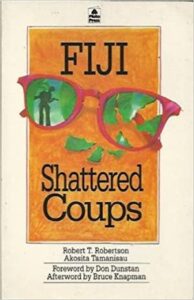



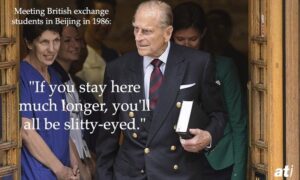


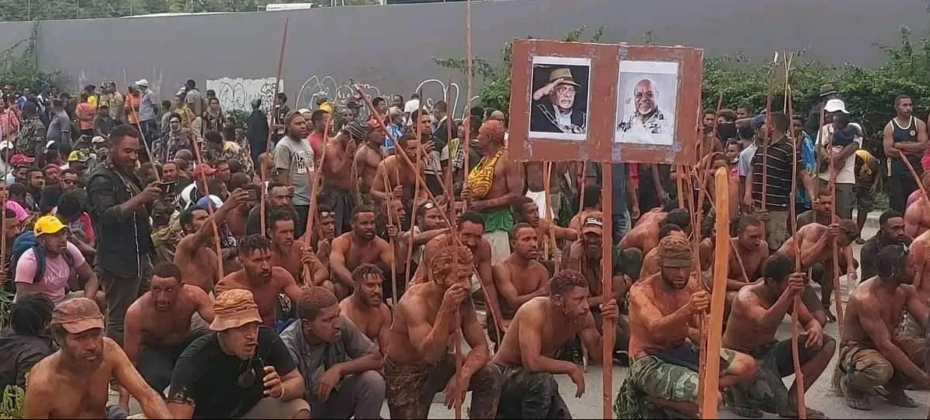
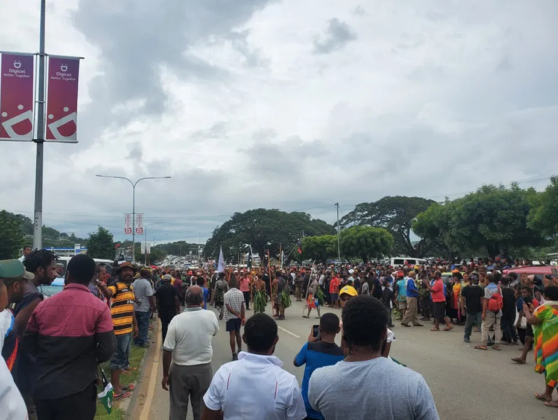

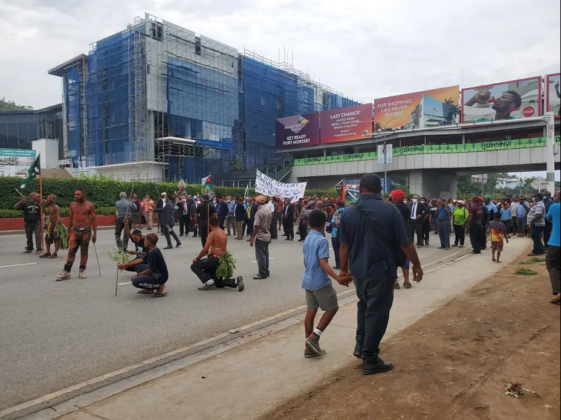
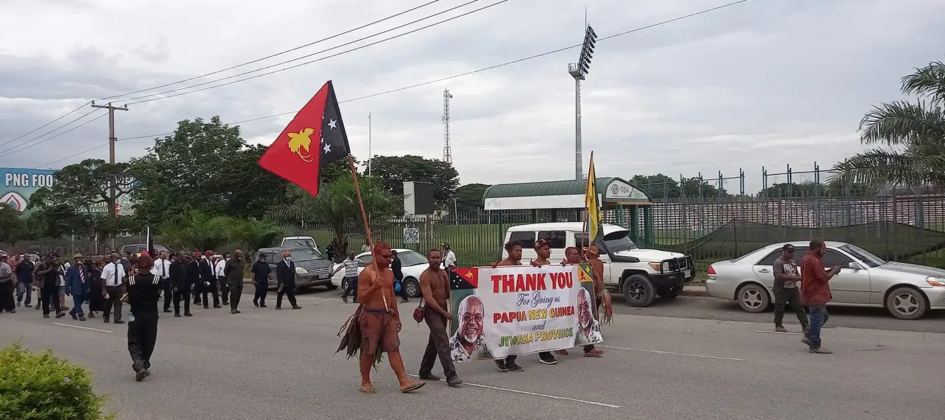


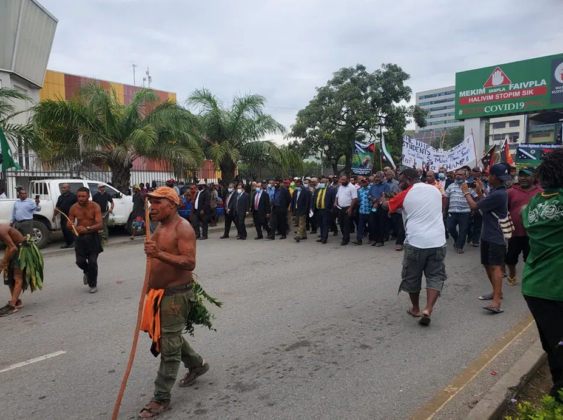
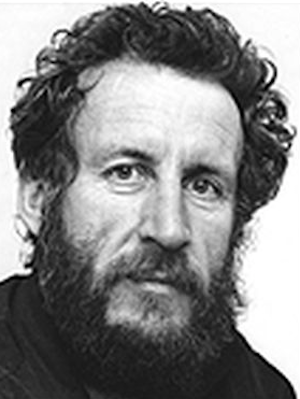
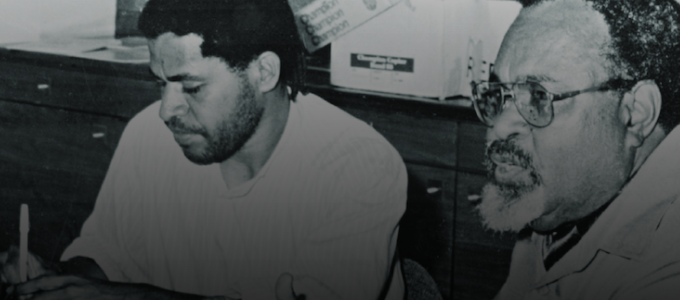
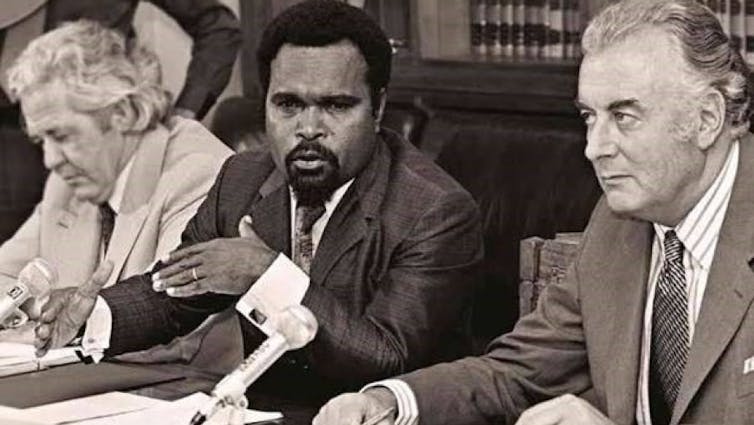
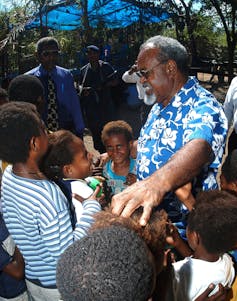


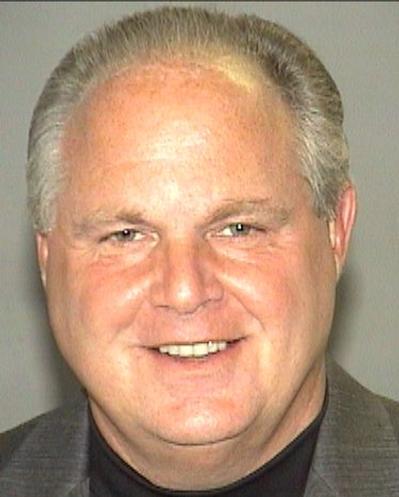
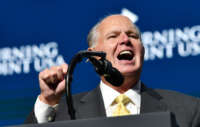
 (@Amy_Siskind)
(@Amy_Siskind) 




